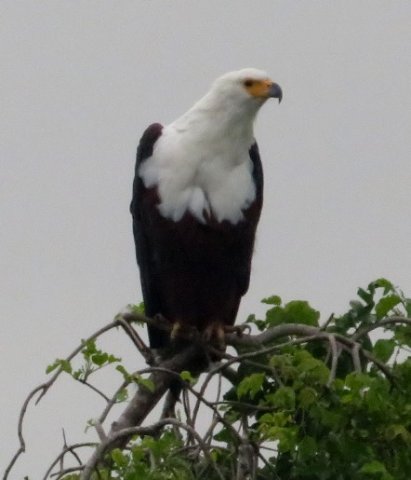African fish eagle

Author: Ivan Lätti
Photographer: Ivan Lätti
The African fish eagle is a widely admired, large raptor living in much of Sub-Saharan Africa. A hooked beak and strong, curved talons spell warning: this fierce day-time hunter is formidable. The distinctive features of the species are, however, the white feathers of the head and upper body. And when its unmistakable call rings out, the bird’s identity is instantaneously revealed, even when hitherto unseen. Those piercing, haunting notes do announce African royalty, bringing the bush into the listener’s being and causing the city to fade.
The African fish eagle lives in places where living food supplies wait in and around the water. Lakes, rivers, dams, pans, swamps, coastal lagoons and estuaries fringed by tall trees will all do just fine. Add clean air, peace and quiet far from madding crowds and fish eagles stay, until tourism takes things too far.
Perched motionless in a tree-top as if innocently at rest by the water, the watch and wait, fully in the open, are conducted masterfully by this accomplished hunter. The moment of the sudden swoop down over the water surface, when it eventually happens, is fast. The element of surprise must leave no time for countermeasures.
The splash is a purposeful action, practiced and efficient. Sharp talons grab a firm hold into the flapping fish body. Big, slow wing movements start the ascent in the same moment, carrying the still live load up against gravity. A large catch (up to 3 kg) may have to be dragged across the water to the shore, the smaller ones fly better.
Sunlight captured in the tiny water drops flying off in all directions ensure a bright, albeit macabre celebration (Maclean, 1993; Wikipedia; www.arkive.org).

